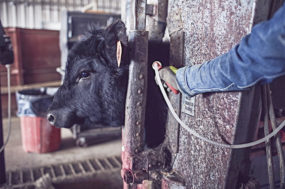However, assuming the value of each car was less than the annual gift exclusion ($15,000 for 2020), Oprah would owe no gift tax and would not be required to file a gift tax return.
I get several emails each year from ranchers asking how much gift tax they will owe since they made a gift. After getting the facts, I let them know they are just like Oprah; no gift tax is owed, and no gift tax return is required to be filed.
Annual gifting can solve a lot of estate tax problems for ranchers with a large amount of land value. For example, assume that rancher John owns 15,000 acres of good pasture worth $40 million. He and his wife are in good health, have four married children and 10 grandchildren.
Under current law, they have a combined taxable estate of about $17 million, and their heirs would owe about $7 million of federal estate tax plus any related state estate taxes. However, by making annual gifts each year, it may only take a few years to eliminate the estate tax.
Each year, John and his wife can give $15,000 to each child, their spouse and each grandchild for a total of $270,000 for John and $270,000 for his wife, or $540,000 total.
Now, this assumes that John and his wife give cash. Since most of their wealth is tied up in ranchland, and the goal is to keep the ground in the family, John and his wife have transferred the ground into a limited liability company (LLC). They now give units in the LLC to each child, spouse and grandchild instead of cash. In most cases, this will result in a discount for gift tax purposes of about 35%.
Therefore, when John and his spouse gift these units, they can give about $23,000 of gross land value to each person. This increases the total amount they can give from $540,000 to about $830,000 annually without reducing their lifetime annual exclusion amount ($11.58 million each in 2020).
Care must be taken in doing these types of gifts. First, obtaining a qualified appraisal for gifts of LLC units is a prudent choice in most situations. Second, even though no gift tax is due, and you may technically not be required to file a gift tax return, it may be wise to file one anyway and attach the appraisal. If you file a gift tax return with the required information, the IRS only has three years to challenge your gift valuation. If you do not file a return, the IRS has unlimited time to challenge (even after your death). This can cost yourself or your heirs a lot of money, time and effort later on.
Some ranchers have concerns about gifting units to spouses of their children. Their goal is to maintain ownership in the family for multiple generations. They are also concerned about a divorce situation allowing the divorced spouse to retain ownership in the farm. A properly structured buy-sell agreement should alleviate most of these concerns. This buy-sell agreement would provide triggers for purchasing the units in case of a divorce or death of that spouse. Remember, units gifted to a child are usually considered marital community property by a judge; therefore, a buy-sell agreement is needed even if no units are transferred to a spouse.
In conclusion, the perception by many ranchers with a gross net worth in the $40 million range is that they need to take advantage of complex estate planning options such as using a complex trust. However, with good health, a few kids and grandkids, it is likely very easy for the couple to get their estate under the current $23.16 million combined lifetime exemption. Just by putting their farmland into an LLC reduces their estate to about $26 million, and making annual gifts over a five-year period will likely drop them under the $23.16 million level.
The current lifetime exemption of $11.58 million (2020) is scheduled to drop in half in 2026 and may be even reduced further, so making annual gifts now may be even more important.
The longer you wait, the more difficult this becomes. If you are in this situation, get started now. ![]()

-
Brandt Self
- CPA, Principal
- CliftonLarsonAllen LLP
- Email Brandt Self








